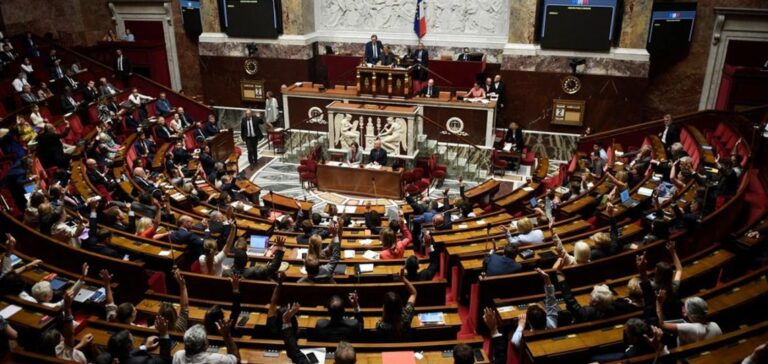On March 11, 2023, the renewable energy acceleration law was promulgated in the Official Journal, one month after its final adoption by the Parliament. This law aims to make France catch up in terms of energy renewable in order to meet the objective set by President Emmanuel Macron for 2050: multiplying solar energy production capacity by ten to exceed 100 GW and deploying 50 offshore wind farms to reach 40 GW.
The recognition of imperative reasons of major public interest (RIIPM) for certain renewable energy projects was also validated by the Constitutional Council and introduced into the law. This law is the first part of a series of three on energy.
Difficult to achieve goals
At the end of 2022, France had a total renewable electricity capacity of about 66 GW, divided between 40% for hydro, 31% for onshore wind and 24% for photovoltaic. However, the country is not expected to meet its targets for electric renewable energy deployment over the 2019-2023 period, according to a study released in late January.
For onshore wind, the official target of 24.1 GW of installed capacity set for the end of 2023 “will not be reached”, with the country barely reaching 20 GW by the end of September 2022, according to Observ’ER. On the photovoltaic side, although growth has been increasing since 2021 and a “partially confirmed increase in 2022” is expected, the sector is still not on the right trajectory.
France accelerates the development of offshore wind and solar power
To remedy this situation, the law to accelerate renewable energies provides for the development of offshore wind and solar energy. This development is essential to achieve the objectives set for 2050.
The second part of the energy series concerns the bill to promote the construction of new nuclear reactors. This bill was voted easily in first reading in the Senate on January 24 and will be defended by the executive in the National Assembly from Monday.
Finally, Parliament will decide, at best this summer, on France’s energy future, with the multi-annual programming law, which will set the share of each energy, including nuclear.
France has become aware of the climate emergency and the need to accelerate the development of renewable energies to meet the energy challenges of tomorrow. The three parts of the energy series are a crucial step toward achieving President Macron’s 2050 goals.






















